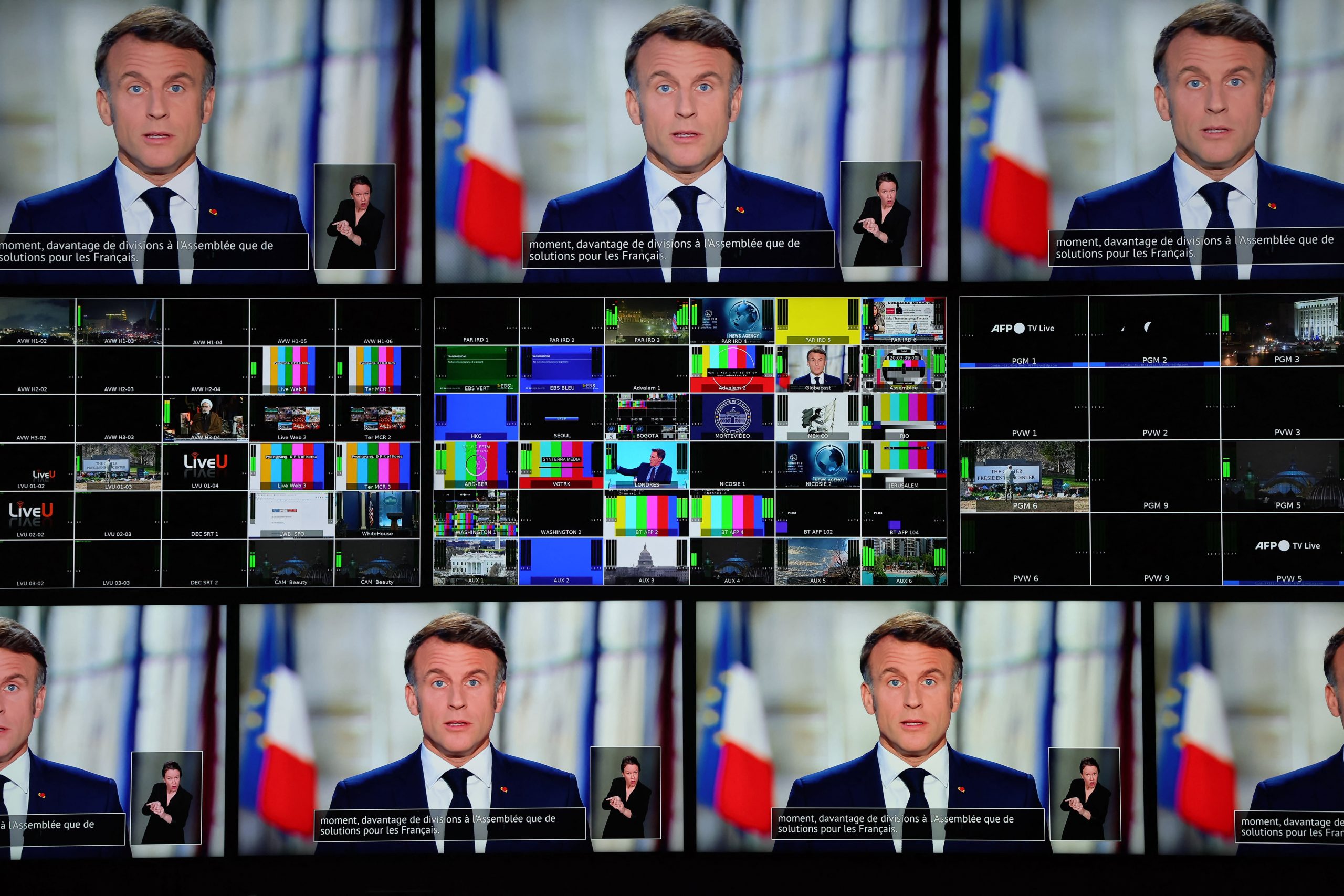French President Emmanuel Macron delivering his televised New Year’s address to the nation from the Elysee Palace in Paris on Dec. 31, 2024.
Kiran Ridley | Afp | Getty Images
As France enters the new year, there’s little hope that the political and economic uncertainty that’s been plaguing the euro zone’s second-largest economy for months will disappear in 2025.
France was plunged into a political crisis last summer when snap parliamentary elections, called by President Emmanuel Macron, failed to produce a decisive result, with both far-left and far-right parties claiming victory in the polls.
Amid infighting over who should govern, Macron installed a centrist, conservative government which proved to be short-lived, with arguments over France’s 2025 budget sowing the seeds of its downfall — at the hands of the far left and far right — in a confidence vote in December.
A new minority government is now in place, but it faces the same challenges as before — how to get political rivals in France’s National Assembly to agree to spending and taxation plans for 2025 that reduce France’s budget deficit, forecast to hit 6.1% in 2024, and debt pile of 112% of gross domestic product, with both far above EU rules.
France’s political debacle has continued to rattle financial markets and raise concerns among economists: Credit ratings agency Moody’s downgraded France’s credit rating last month, warning that political fragmentation was “more likely to impede meaningful fiscal consolidation” and that the country’s public finances will be “substantially weakened over the coming years.” While most European markets managed to eke out gains in 2024, France’s CAC 40, beleaguered by political turbulence, fell 2.2% over the year.
Macron admits mistake
Though Macron has defied calls for his resignation and refused to hold early presidential elections, he appeared to admit on Tuesday that his decision to hold a snap vote last year had created more problems than solutions for France.
“We are also faced with political instability, it is not specific to France, we also see it among our German friends who have just dissolved their Assembly. But it legitimately worries us,” Macron said in his New Year address.
“I must admit tonight that the dissolution [of parliament] has brought, for the moment, more divisions to the Assembly than solutions for the French,” he added.
French President Emmanuel Macron delivering a televised New Year’s address to the nation from the Elysee Palace in Paris on Dec. 31, 2024.
Kiran Ridley | Afp | Getty Images
“If I decided to dissolve it was to give you back the floor, to regain clarity and avoid the immobility that threatened. But lucidity and humility demand that we recognize that at this time, this decision has produced more instability than serenity and I take full responsibility for that.”
Economy has ‘difficult winter’ ahead
No one is underestimating the challenge, with new Prime Minister Francois Bayrou stating, as he took on his new role in December, that France faced a “Himalaya” of a task when it comes to fixing its deficit and debt problems and healing political division.
Economists and analysts agree.
“The French economy is in for a difficult winter, with economic activity likely to stagnate and a recession not out of the question,” Charlotte de Montpellier, senior economist of France and Switzerland at ING, said in emailed analysis last month.
“While we can hope for a slight recovery when – and if – the political situation becomes clearer, this will not be enough to give a significant boost to French activity in 2025. We are therefore still expecting GDP to grow by 0.6% in 2025, compared with 1.1% in 2024 – a lower figure than most official institute forecasts,” she noted, adding that the risks France is facing are currently to the downside.
Andre Sapir, senior fellow at the Brussels-based economics think tank Bruegel, believes the new government will make slow progress.
“Essentially, the new government has the same task as the previous very short-lived government, to try to fill part of the budgetary hole … this is not going to be very simple, but I think the life of this government may be longer than the previous one,” he told CNBC’s “Squawk Box Europe.“
“I think the only way to understand what is going on in France is not really to use an economic lens. Yes, there are plenty of economic problems that need to be attended to, including the budget, but the game that is being played is about the next presidential election, and so everybody is gearing themselves for the election. It’s meant to be in 2027 but some parties want it earlier so they are pushing for more of a crisis, and others are trying to gain time,” he noted.
“In a sense, you could say that France is not governable, and indeed, that’s why I’m not expecting much progress on the budget, really the minimum able to get through [parliament].”
Early election?
Sapir believes that if the new Bayrou government were brought down in a new confidence vote, calls for Macron to resign could intensify.
However, he noted that there is division between a range of political parties as to whether an early presidential election would be beneficial to their respective interests.
For the far left and far right, however, an election in 2025 might be preferable, Sapir noted, with both Jean-Luc Melenchon, the head of the far-left France Unbowed (La France Insoumise) and far-right National Rally (Rassemblement Nationale) figurehead Marine Le Pen fancying their chances in an earlier vote.
“Many others don’t want either Le Pen or Melanchon [in power], so they will not want to have the election in 2025 so this is really, I think, the game that is being played. For Le Pen and Melanchon, 2025 would be ideal time.”
Checkout latest world news below links :
World News || Latest News || U.S. News
The post Uncertainty is expected to plague Paris in 2025, as Macron admits snap elections destabilized France appeared first on WorldNewsEra.

